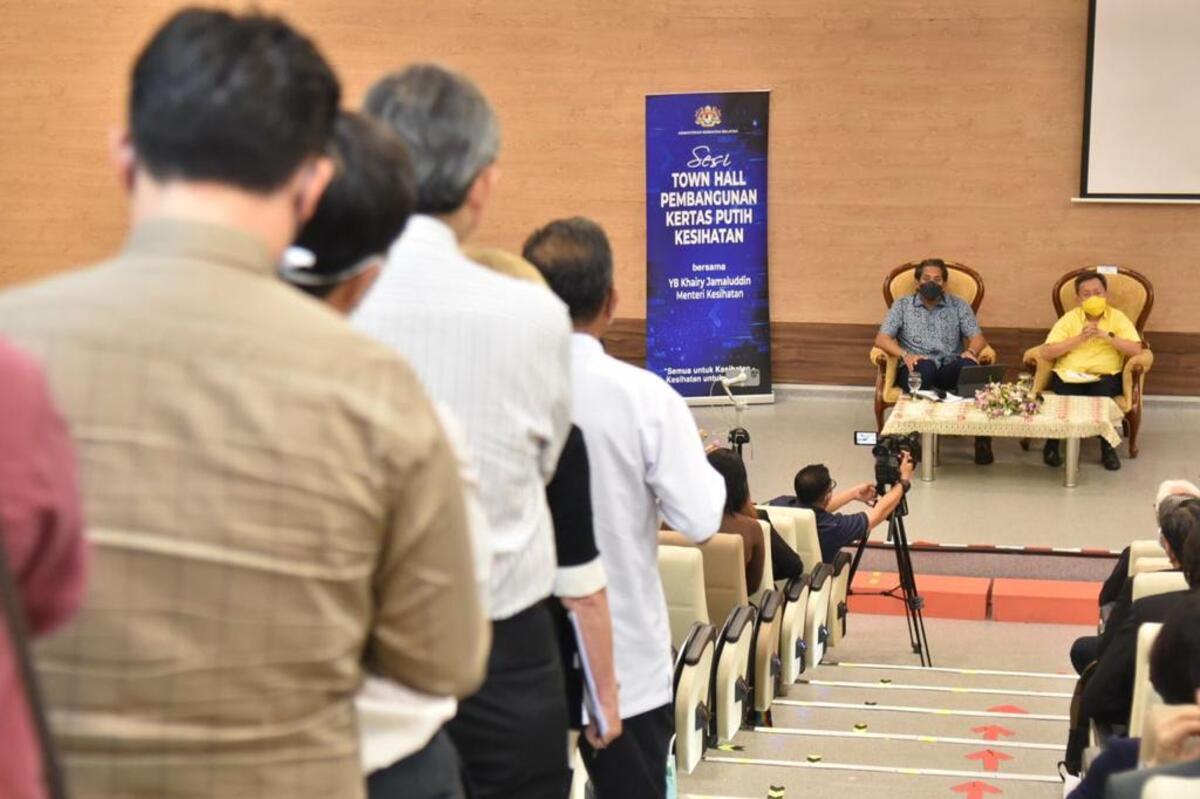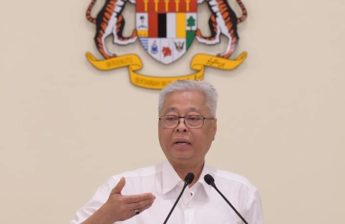KUALA LUMPUR, Sept 7 – Health Minister Khairy Jamaluddin envisions reforming the primary health care system to decongest overloaded public hospitals in a shift from curative to preventive and community care.
He said many clinicians, and hospital directors and heads of department have told him that many cases they see in hospitals should not have ended up there.
“It’s because of the lack of preventive strategies, the lack of enhanced primary health care, the lack of…a system that puts patients at the centre of the system with community care, with social workers caring in the community, that everyone ends up in hospital,” Khairy told the first Health White Paper (HWP) town hall session in Kuching, Sarawak, last Monday.
“If you go to the emergency department on weekends, cases that shouldn’t even be there are there, clogging up our hospitals.
“Clinicians who should be attending to the most complicated curative cases, the most complex treatments, the most difficult disease, the most cutting edge treatments, are having to spend their time on cases which shouldn’t be in hospital in the first place.
“So we need to make sure that we enhance primary health care. There has to be a renaissance for primary health care in the White Paper.”
Khairy reassured clinicians, however, that a pivot to primary health care would not necessarily mean less investment in hospitals.
“But I want to make sure that what I invest, what the minister invests in hospitals, will give you a better bang for your buck. Now you see cases which shouldn’t end up in hospital.”
Fear Discourages People From Undergoing Free Health Screenings
Khairy highlighted that only 600,000 of 5.6 million eligible people, or just 11 per cent, went for health screenings under the Peka B40 programme, even though these screenings are fully subsidised by the government.
He said private general practitioners (GPs) under Peka B40 informed him that the low up-take wasn’t due to difficulty in accessing the screenings, as the doctors do outreach work and go to the community in rural and interior areas.
“They don’t want to do screening because they’re scared, they don’t want to know, or because they seem healthy,” Khairy said. “At the end of the day, when they come to us, it’s too late already.”
Peka B40 health screenings include a blood cell test, blood sugar control test, cholesterol test, kidney function test, and urine test; a physical exam; as well as a clinical breast exam for women and clinical prostate exam for at-risk men.
Those who require treatment will be referred to a public health clinic. Peka B40 beneficiaries who prefer to go to private clinics must pay for the cost of treatment themselves.
Electronic Medical Records Needed In Public Hospitals
Khairy said reforming the health care system from “sick care” to health care and wellness also involves expanding digital health and medical records.
He noted that only 30 of 148 Ministry of Health (MOH) hospitals have health information systems. Sarawak General Hospital and Kuala Lumpur Hospital do not use electronic medical records.
“So asking for 5 per cent of the GDP is fair,” Khairy said, referring to his plans to double the public health care budget to 5 per cent of Malaysia’s gross domestic product (GDP) by 2030.
“We want to make sure we have electronic medical records. Come on, it’s 2022.”
The health minister said the HWP will prioritise the patient journey.
“This Health Care White Paper will come up with a system that’s fit for purpose that puts the patient at the centre of the system, whether it’s her health care records that he or she carries with her, taking ownership of health care, making sure there’s a family medicine specialist at the primary health care level that looks after the family, making sure there’s right interventions, behavioural or otherwise, taking care of the patient journey from birth to old age.”
One Parliament Meeting Left
Khairy said he believes that he has one parliamentary meeting left during his office as health minister.
He plans to table the HWP in Parliament for bipartisan support by year end during the upcoming Dewan Rakyat meeting that starts next month.
“I want to take this paper so that whoever is in charge next, they know this is the Health White Paper that has come from the voices of everyone, all stakeholders in the public health care system that want it to be sustainable, modern, well invested, fit for purpose and something that all of you will be proud of.”
Umno president Ahmad Zahid Hamidi has been pushing for the 15th general election to be held as soon as possible. There is wide speculation that the poll may be called this year, especially after the tabling of Budget 2023 was pushed ahead by three weeks to October 7.
Khairy said when he was appointed as health minister in August 2021, he knew that he would have less than two years in office.
“So I have two choices – should I just do the bare minimum, get us out of the pandemic and let the clock run out? Let’s face it, this ministry is not an easy ministry, or shall we do something about this ministry?”
He said the “politically expedient” choice would have been to just manage the Covid-19 pandemic and avoid attempting to resolve systemic and structural problems in the health care system, given that previous health ministers did not fully succeed in reforming health care.
“What changed my mind? The pandemic laid bare the gaps in our public health care system and it was something I could not ignore.”
Khairy said his sometimes unannounced visits to public hospitals and clinics showed how motivated MOH staff were despite problems of under-staffing, overwork, and insufficient funding across all public health care facilities.
“I thought to myself – will I be a good minister if I run the clock out in two years, or do something about it and demand our fair share of investment in the public health care system of Malaysia. That’s what I decided – let’s do something about it.”








